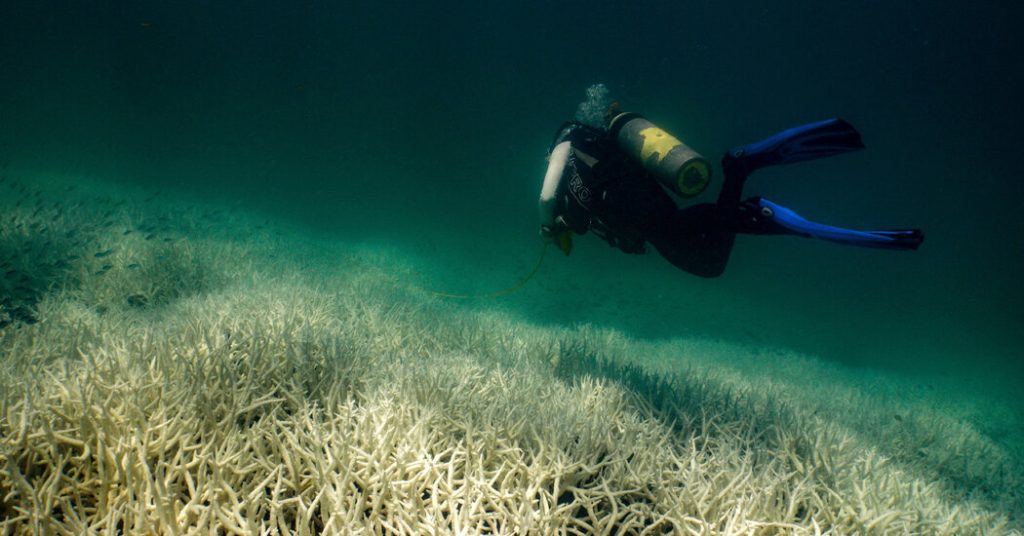The world’s coral reefs are currently experiencing a global bleaching event due to unprecedented ocean temperatures, with more reefs expected to be affected than ever before. Coral bleaching is a process in which corals become stressed and lose the symbiotic algae they need to survive. While bleached corals can recover, prolonged exposure to high water temperatures can result in their death. Coral reefs are important ecosystems that support a quarter of ocean species at some point in their life cycles, provide food for millions of people, and protect coastlines from storms, with an estimated annual economic value of $2.7 trillion.
Despite warnings from scientists and commitments from leaders, greenhouse gas emissions are rising and nations continue to burn fossil fuels at a record pace. This global bleaching event is a stark reminder of the consequences of climate change and the urgent need to reduce carbon emissions. The current event is the fourth global bleaching event on record, with more than 54 percent of the world’s coral area experiencing bleaching-level heat stress in the past year. This event is expected to be the most spatially extensive global bleaching event on record.
While substantial coral death has been observed in regions like Florida and the Caribbean, it is too early to estimate the overall global mortality of corals during this event. Bleaching has been confirmed in 54 countries, territories, and local economies across the globe. The Great Barrier Reef in Australia is experiencing one of its most severe bleaching events, with about one-third of the surveyed reefs showing extreme bleaching. The current bleaching event is projected to be shorter in duration compared to previous events due to the weakening of the El Niño climate pattern and the onset of a cooler La Niña period.
Scientists emphasize the need for urgent global action to reduce future bleaching events primarily driven by carbon emissions. Efforts are underway to breed coral that can tolerate higher temperatures and to help coral migrate to cooler areas, but the multitude of factors affecting coral health, such as ocean acidification and changing sea conditions, pose significant challenges. A recent report from the Intergovernmental Panel on Climate Change warned that the world could lose the vast majority of its coral reefs at 1.5 degrees Celsius of warming and virtually all at 2 degrees. Despite the grim outlook, scientists remain hopeful that with concerted global effort and action, the problem can be solved.


